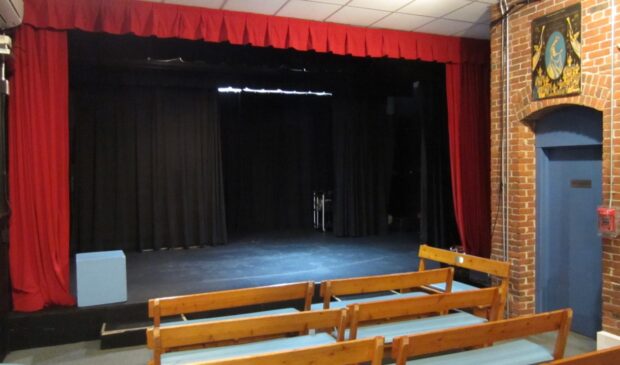Eligibility language confusion adds to frustrations over new Cultural Arts awards
Thursday, March 2, 2023 by
Chad Swiatecki Arts leaders dissatisfied with the city’s new Thrive program for funding established arts organizations are pointing to unclear wording in the program’s eligibility language for causing some groups to forgo applying.
Some are also arguing that the requirements should have filtered out a number of groups that received awards.
Discussion at Monday’s Arts Commission meeting included a review of the initial group of 36 Thrive award recipients who split $3.9 million in Cultural Arts funding generated by Hotel Occupancy Tax revenue.
The meeting opened with comments from Sally Jacques, founder of Blue Lapis Light, who said that based on the widespread interpretation of the program language, seven recipient groups shouldn’t have been eligible and in effect took awards ranging from $85,000 to $150,000 away from other potential winners.
“The rules were established by the city and then not followed through with by the city and a travesty of what should have been a fair process happened. The artistic ecosystem is falling apart, organizations are folding, letting go of staff, and are unable to continue without city support,” she said.
“Our vibrant arts community is now being shoved into one pool with applicants from the surrounding five counties,” Jacques said. “We are a dynamic, creative and inspirational group of artists and organizations across many art forms whose passion for their work is being undermined.”
At issue are a pair of qualifiers stating that applicant groups much be 501(c) nonprofits, and have five years of activity. The wording in the program guidelines states eligible applicants must be “501(c) non-profit arts organizations that have been in operation for 5 years or more,” which many read to mean the nonprofit status had to be in place for five years.
That more restrictive interpretation would have filtered out groups such as Glass Half Full Theatre and Torch Literary Arts, which met the five-year requirement but only received nonprofit status in recent years.
Commissioner Acia Gray said the feedback she received from leaders at assorted arts groups tended to fall on the eligibility being more restrictive.
“As an Arts commissioner, I want to be on record that it was my understanding that the Thrive program was for 501(c) organizations that had been in existence for five years,” she said, agreeing that the language could be misinterpreted. “The eligibility statement that’s in the guidelines that are still posted online says of an applicant’s eligibility it is a 501(c) organization that has been in existence for five years, or a lot longer. It kept people from applying who perhaps became a 501(c) two years ago and didn’t realize they could do something.”
Cultural Arts staff noted that the eligibility requirements had been reviewed multiple times and approved by the Arts Commission prior to being enacted. The staff members said the comments will be taken into consideration to improve clarity for future iterations of the two-year program, as well as the upcoming Elevate and Nexus grant cycles that are targeted toward newer groups and individual artists.
The Thrive program has also come under criticism from longtime recipients of city funding who were shut out as an effect of the limited pool of money and the city’s ongoing shift to emphasize equity. That change began in 2018 with an adjustment in application scoring that many established arts groups said they were unaware of and not properly involved in.
The review process that took place over several years resulted in the Thrive program as well as Elevate and Nexus. Elevate is budgeted at around $6 million, and Nexus is budgeted at about $250,000.
Earlier in the meeting, Cultural Arts staff reviewed the continued improvement in hotel tax collections, which some commissioners noted could open the door to budget increases in programs for the 2024 fiscal year.
Photo by Michael Arena, CC BY-SA 4.0, via Wikimedia Commons.
The Austin Monitor’s work is made possible by donations from the community. Though our reporting covers donors from time to time, we are careful to keep business and editorial efforts separate while maintaining transparency. A complete list of donors is available here, and our code of ethics is explained here.
You're a community leader
And we’re honored you look to us for serious, in-depth news. You know a strong community needs local and dedicated watchdog reporting. We’re here for you and that won’t change. Now will you take the powerful next step and support our nonprofit news organization?











